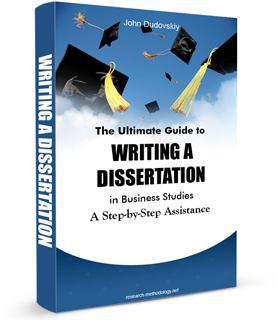Literature review sources
Sources for literature review can be divided into three categories as illustrated in table below. In your dissertation you will need to use all three categories of literature review sources:
| Sources of literature | Characteristics | Examples |
| Primary sources for the literature | High level of detail
Little time needed to publish |
Reports
Theses Emails Conference proceedings Company reports Unpublished manuscript sources Some government publications |
| Secondary sources for the literature | Medium level of detail
Medium time needed to publish |
Journals
Books Newspapers Some government publications Articles by professional associations |
| Tertiary sources for the literature | Low level of detail
Considereable amount of time needed to publish |
Indexes
Databases Catalogues Encyclopaedias Dictionaries Bibliographies Citation indexes Statistical data from government websites |
Sources for literature review and examples
Generally, your literature review should integrate a wide range of sources such as:
- Books. Textbooks remain as the most important source to find models and theories related to the research area. Research the most respected authorities in your selected research area and find the latest editions of books authored by them. For example, in the area of marketing the most notable authors include Philip Kotler, Seth Godin, Malcolm Gladwell, Emanuel Rosen and others.
- Magazines. Industry-specific magazines are usually rich in scholarly articles and they can be effective source to learn about the latest trends and developments in the research area. Reading industry magazines can be the most enjoyable part of the literature review, assuming that your selected research area represents an area of your personal and professional interests, which should be the case anyways.
- Newspapers can be referred to as the main source of up-to-date news about the latest events related to the research area. However, the proportion of the use of newspapers in literature review is recommended to be less compared to alternative sources of secondary data such as books and magazines. This is due to the fact that newspaper articles mainly lack depth of analyses and discussions.
- Online articles. You can find online versions of all of the above sources. However, note that the levels of reliability of online articles can be highly compromised depending on the source due to the high levels of ease with which articles can be published online. Opinions offered in a wide range of online discussion blogs cannot be usually used in literature review. Similarly, dissertation assessors are not keen to appreciate references to a wide range of blogs, unless articles in these blogs are authored by respected authorities in the research area.
Your secondary data sources may comprise certain amount of grey literature as well. The term grey literature refers to type of literature produced by government, academics, business and industry in print and electronic formats, which is not controlled by commercial publishers. It is called ‘grey’ because the status of the information in grey literature is not certain. In other words, any publication that has not been peer reviewed for publication is grey literature.
The necessity to use grey literature arises when there is no enough peer reviewed publications are available for the subject of your study.
 My e-book, The Ultimate Guide to Writing a Dissertation in Business Studies: a step by step assistance offers practical assistance to complete a dissertation with minimum or no stress. The e-book covers all stages of writing a dissertation starting from the selection to the research area to submitting the completed version of the work within the deadline.
My e-book, The Ultimate Guide to Writing a Dissertation in Business Studies: a step by step assistance offers practical assistance to complete a dissertation with minimum or no stress. The e-book covers all stages of writing a dissertation starting from the selection to the research area to submitting the completed version of the work within the deadline.
John Dudovskiy
